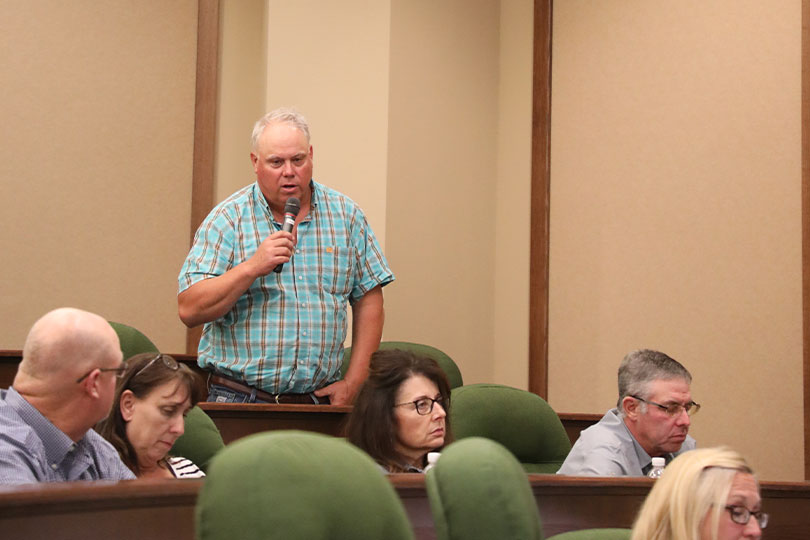By Julie Tomascik
Editor
Property taxes, solar leases, right to farm and the upcoming farm bill were among the topics discussed at Texas Farm Bureau (TFB) Policy Development meetings across the state.
Policy Development meetings are part of the process to create the organization’s road map for the upcoming year, allowing members to surface and discuss potential policy changes.
“As a grassroots organization, Farm Bureau policy starts with our members, and their policies guide the state and national organization,” Brant Wilbourn, TFB associate director of Commodity and Regulatory Activities, said. “The Policy Development meetings are instrumental in mapping out our organization for the next year. Each TFB district has different issues that are important to the area, but they’re also important to agriculture and rural life across the state.”
About 600 county leaders representing nearly 160 counties were in attendance at the district meetings.
Landowners noted property taxes continue to increase and stressed the importance of maintaining agricultural use valuation.
“Farmers and ranchers are still struggling with supply chain issues, skyrocketing inflation and fuel costs, unpredictable weather and other challenges. Increasing property taxes right now is another issue not needed,” Wilbourn said.
Solar panels are cropping up across the Lone Star State, fueling concern for unintended consequences to the state’s natural resources. Managed, open space lands are being converted to industrial solar complexes without regard to stormwater runoff, erosion prevention and downstream water quality.
“The solar industry is growing at a rapid pace, and landowners have many questions and concerns,” Wilbourn said. “Members have consistently brought up the environmental issues and reliability for these renewable power resources.”
And as Texas grows increasingly urban, the state’s “right to farm” statute needs to be strengthened.
The current law only protects agricultural operations annexed after Aug. 31, 1981. But urban sprawl and local government regulations could jeopardize the future of some farms and ranches.
Members shared personal stories about city ordinances impacting their ability to farm and ranch within city limits.
“Some municipal ordinances prohibit many, and sometimes all, normal agricultural practices like raising and keeping livestock, hay production and growing certain row crops,” Wilbourn said. “Discussions were held about changes to the state’s agriculture code to preserve and strengthen right to farm statutory protections.”
The 2023 Farm Bill is on the horizon, and Texas farmers and ranchers discussed what is needed to have a strong safety net.
“Over the years, the farm bill has evolved to meet the needs of modern-day constituents—farmers, ranchers and consumers,” Wilbourn said. “There was a lot of discussion about the commodity programs in the farm bill. Agriculture’s role in providing food security, and in turn national security, is extremely important.”
Additional policy topics covered included foreign ownership of land, trade and ways to encourage and help young and beginning farmers. Possible changes to federal programs like the Environmental Quality Incentives Program to assist producers with tank cleanouts and other practices during times of drought were also discussed.
County Farm Bureaus must submit policy resolutions that were adopted at their annual meeting to the state office by Oct. 28.
State and national policy proposals approved by county Farm Bureaus will be considered by the TFB Resolutions Committee in November.
The committee’s recommendations will then be forwarded to the TFB Annual Meeting in December for consideration by the voting delegates.

